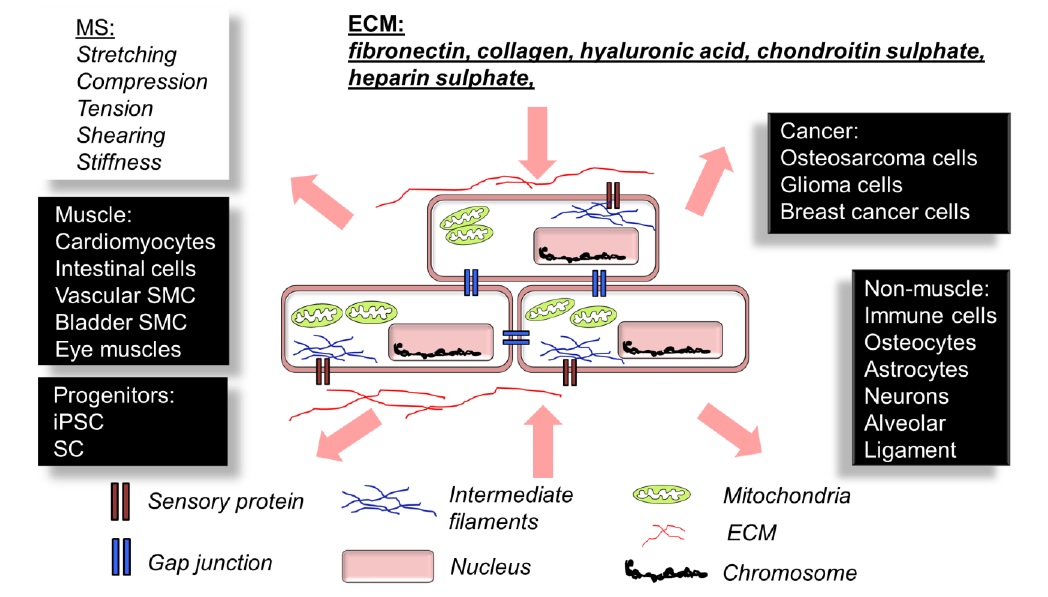Thought runs through the mind like blood runs through our body to keep us alive. Like the mind, the body does not stay inert and is in constant motion. Not a single cell in our body is left inert unless cell is under stress or dying. These scenarios are reflected upon when a person is sick, the person lies in bed with less movement; however, is active when the person is healthy. The topic of mechanical stimulation has emerged due to the increasing understanding of the physical stimulations we face each day. Further understanding of the mechanically-regulated mechanism can help us explore the pathological events in a disease. Here, we reviewed the role of sensory proteins in pathological events that are observed in cardiomyopathy, cancer, respiratory, renal, obesity, genetics, physical injury and bacterial infection. Taken together, sensory proteins are mechanically-activated which assist reception of external physical stimulation and convert into biochemical to trigger intracellular signaling cascade.

